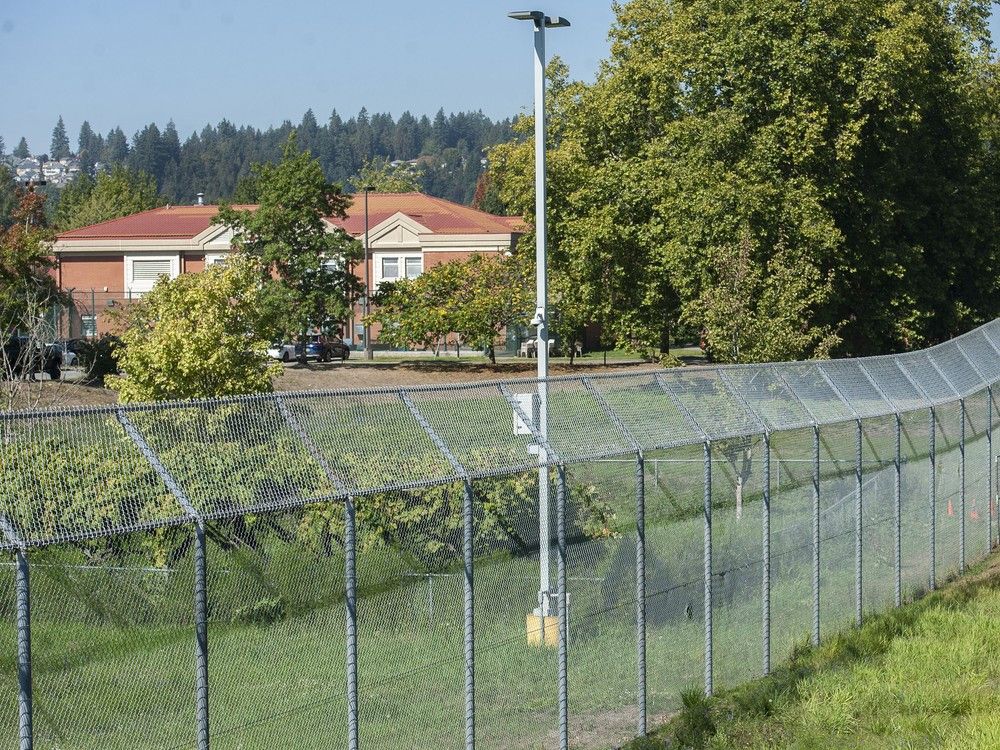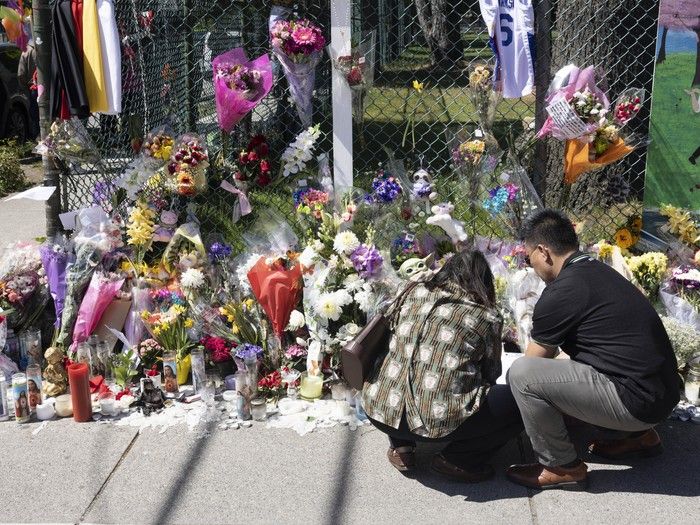
B.C. desperately needs a second forensic psychiatric hospital because the existing one doesn’t have enough room to accommodate all the violent, mentally ill offenders who need to go there for treatment, says an alarming report by an independent tribunal.
“The Forensic Psychiatric Hospital is under constant pressure as more new accused are being admitted to hospital than are being discharged,” says the report by the B.C. Review Board , which is tasked with protecting the public from violent offenders.
“These competing demands on the limited bed space … have an obvious solution: A second forensic psychiatric hospital.”
The board’s annual report noted that Ontario has 11 forensic hospitals for a population of 15.9 million. B.C. has one forensic hospital serving a population of 5.6 million.
The 190-bed Forensic Psychiatric Hospital in Coquitlam treats people referred by the courts or corrections officials after they have been found not criminally responsible because of a mental disorder or unfit to stand trial.
The review board issues orders for these offenders, who are all deemed to “pose a significant threat to public safety.” Its decisions must take into consideration both shielding citizens from dangerous people and reintegrating the accused into society when they are ready to do so.
But board members say they’ve struggled to do that job in recent years because of a “dwindling number” of programs that offer drug treatment or sufficient supervision of the accused after release into the community. That means some forensic patients are being kept in the hospital, even though they no longer require hospitalization, which leaves not enough beds for all the new offenders.
“The board is significantly hampered in its ability to meet its dual mandate of protecting the public whilst also meeting the accused(‘s) needs with the resources available,” says the report signed by board chair Brenda Edwards, a lawyer and former provincial court judge.
Almost half of the violent offenders referred to the board in 2023-24 were released by the courts before their first review board hearings, which required Edwards’s staff to search for them. One woman considered mentally unfit to be tried on assault charges was found only after she’d been hit by a car and hospitalized, the report said.
“Courts released accused persons charged with violent offences whose mental disorders were untreated and who were homeless, and substance addicted,” the report says.
The Health Ministry did not directly answer Postmedia’s questions about the need for another forensic psychiatric hospital or why some residential treatment programs have stopped accepting these types of patients.
Health Minister Josie Osborne, who declined to be interviewed, said in an email that she will work with other ministries and agencies “to address issues identified in the (review board) report,” but gave no specifics.
She added the province is “urgently” expanding the overall mental health system, including involuntary care.
The board’s frank assessment of the challenges it is facing comes as there have been high-profile stranger attacks by people apparently suffering from acute mental illness. Most recently, Vancouver’s Lapu Lapu festival attack left 11 people dead in April. A court hearing is scheduled to determine that suspect’s mental fitness.

In another stranger attack in Vancouver, in September, one man was killed and another had his hand cut off. Police said the suspect was “ a very troubled man who has a lengthy history of mental health-related incidents that have resulted in 60 documented contacts with police.”
While the report focuses on a lack of resources for violent offenders, its findings are symptomatic of “government’s long-standing neglect” of funding for the entire mental health system — including for early intervention before the illness becomes severe, one expert says.
Tragedies like the Lapu Lapu festival killings are “the cost we ultimately end up paying when you choose to save money by not putting mental health care at the centre of our public health priorities,” said Kiffer Card, an assistant professor in SFU’s faculty of health sciences.
Card agreed the province needs another forensic psychiatric hospital.
Overall, he added, the number of mental health beds in B.C. must be doubled or even tripled, but that must come with adequate funding and staff to handle complex patients and to minimize their risk for aggression.
“That’s been a really big challenge here in B.C., of getting the beds and keeping the beds,” he said.

There are at least three community-based residential programs which, over the last year, have stopped taking forensic patients, Edwards said in an email.
“It is my understanding that, at present, there are no residential substance treatment facilities in B.C. that will accept forensic patients who are under the review board’s jurisdiction,” she said.
Edwards said there is “an acute shortage” of housing for patients discharged from the psychiatric hospital. She is aware of just three places — in Coquitlam, Victoria and Prince George — that will now accept them.
The Health Ministry insists there are community resources, such as the transitional cottage program run by a non-profit, that provide psychosocial rehabilitation and treatment to help psychiatric hospital patients reintegrate into the community.
The ministry says it also has seven regional clinics which offer treatment and “risk management” for people with legal orders who have mental health and substance use challenges, including those before the review board.
The ministry noted it recently opened 10 involuntary care beds at the Surrey pretrial jail for people in custody requiring urgent help for mental health and substance use.
Since the review board’s “sobering report” was sent to government in September, the province has shown little urgency to address the concerns it highlighted, including the need for a second forensic hospital, said Elenore Sturko, the public safety critic for the opposition Conservatives.
In response to the Lapu Lapu festival killings, Premier David Eby promised a review and modernization of the Mental Health Act , but Sturko argued what needs to be examined instead is all the gaps in services available for people who fall under that act.
“Where do we need to prioritize solutions quickly to improve safety for people suffering from mental illnesses and for the greater community?”
The Health Ministry said the scope of the review, its timeline, and who will conduct it are still being determined.
Sturko tipped off Postmedia to the review board report, which until now does not appear to have been publicly discussed.